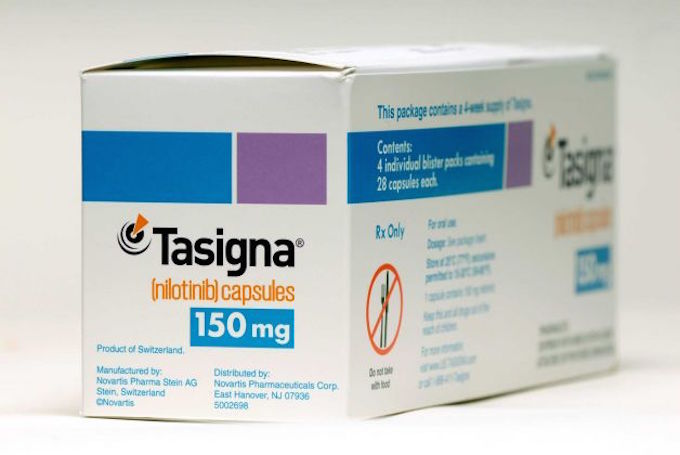A small, early stage trial (with no control group) at Georgetown has found that a small dose of the leukemia drug nilotinib (brand name “Tasigna” by Novartis) produced “meaningful clinical improvements” in 10 out of 11 patients.
The potential impact is significant, and the researchers believe that expanded studies will validate the promising results. During the trial, participant dopamine levels increased so much that they were advised to reduce or stop taking other drugs.
The investigators reported that one participant, who was confined to a wheelchair, was able to walk again, and three participants who could not speak were able to hold conversations.
The study marks the first time a therapy appears to reverse the “cognitive and motor decline in patients with these neuro-degenerative disorders,” according to Professor Fernando Pagan, who led the study with Charbel Moussa.
There has been some success with stimulation treatments for Parkison’s symptoms, and advances in early diagnosis and monitoring, but there is no known cure for this debilitating disease. (See ApplySci Parkinson’s coverage, 2013-2015.)
Click to view Georgetown University Medical Center video.
WEARBLE TECH + DIGITAL HEALTH SAN FRANCISCO – APRIL 5, 2016 @ THE MISSION BAY CONFERENCE CENTER
NEUROTECH SAN FRANCISCO – APRIL 6, 2016 @ THE MISSION BAY CONFERENCE CENTER
